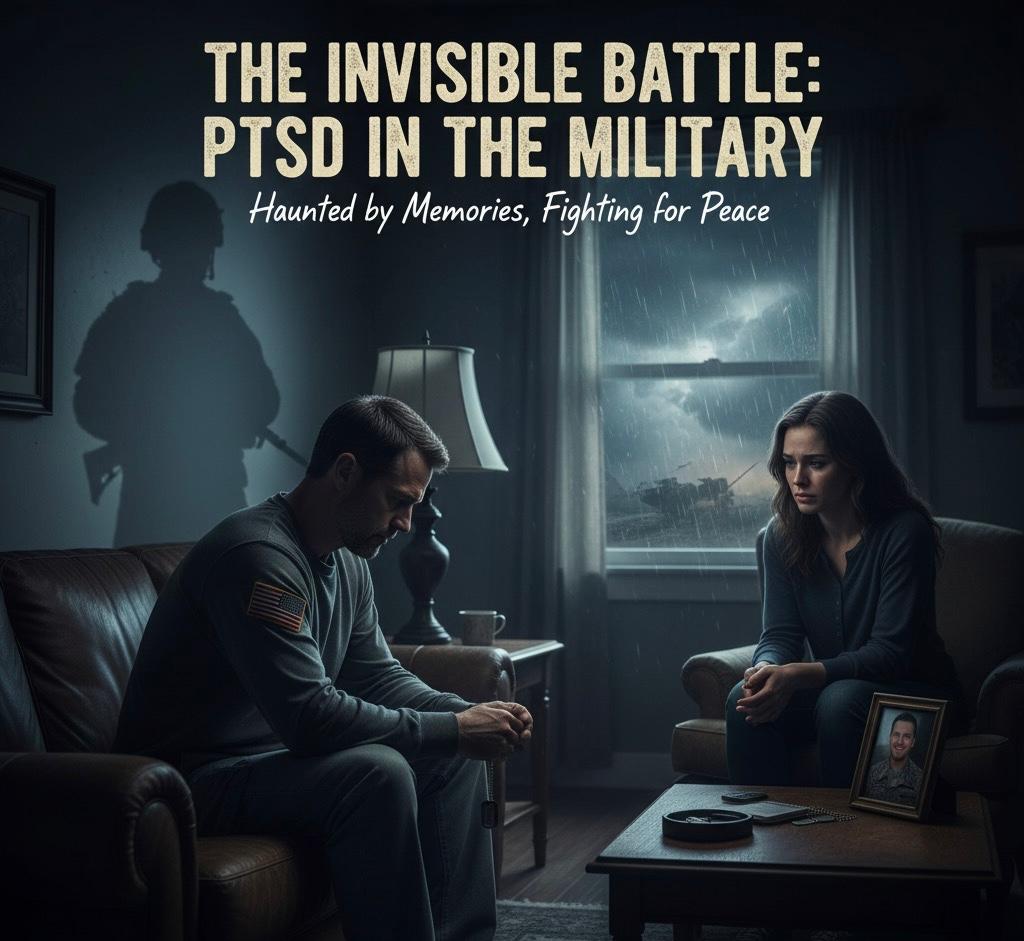Post-Traumatic Stress Disorder (PTSD) is a mental health condition triggered by experiencing or witnessing a terrifying event. It can lead to flashbacks, nightmares, severe anxiety, and uncontrollable thoughts about the incident. While PTSD can be debilitating, with the right strategies and support, individuals can navigate their trauma and find a path towards healing. This article offers guidance on how to cope with PTSD.
Understanding PTSD
Before delving into coping mechanisms, it’s essential to recognise that PTSD is a natural response to unnatural circumstances. Symptoms can vary, but often include:
- Reliving the traumatic event through flashbacks or nightmares.
- Avoidance of situations that remind one of the traumatic event.
- Hyperarousal symptoms, such as feeling on edge or experiencing anger outbursts.
- Negative changes in beliefs, feelings, or thoughts related to the traumatic event.
Strategies to Cope with PTSD
- Professional Therapy: Evidence-based therapeutic approaches, such as Cognitive Behavioural Therapy (CBT) and Eye Movement Desensitization and Reprocessing (EMDR), have shown significant promise in treating PTSD. A trained therapist can provide tools, resources, and support tailored to an individual’s needs.
- Mindfulness and Meditation: Grounding exercises can help divert attention from traumatic thoughts and anchor individuals to the present. Techniques include deep breathing, progressive muscle relaxation, and guided imagery.
- Avoid Drugs and Alcohol: While it might be tempting to use substances to escape feelings or numb pain, they can exacerbate PTSD symptoms and decrease the effectiveness of therapy.
- Stay Connected: Talking to trusted friends, family members, or joining a PTSD support group can make a difference. Sharing feelings and experiences can reduce feelings of isolation.
- Physical Activity: Regular exercise can help combat PTSD symptoms by releasing endorphins, reducing stress, and improving mood. It’s essential to find an activity that’s enjoyable and sustainable.
- Establish a Routine: Having a sense of normality and structure can provide comfort. Prioritising sleep, maintaining a balanced diet, and setting aside time for relaxation can be instrumental.
- Limit Exposure: While it’s essential to confront trauma in a therapeutic setting, constant exposure to triggers in daily life might be overwhelming. If news stories, certain movies, or particular places exacerbate symptoms, it’s okay to set boundaries.
- Educate Yourself: Understanding PTSD can demystify the condition and provide a sense of empowerment. The more knowledge one has, the better equipped they’ll be to advocate for themselves and seek appropriate treatment.
Conclusion
Coping with PTSD is a journey, often filled with challenges, but also with the potential for growth, resilience, and healing. While the path is individual, the overarching message remains the same: with the right strategies, support systems, and professional guidance, recovery is not just possible but probable. Everyone deserves a life free from the shadows of trauma, and with perseverance and commitment, that life is within reach.
Take a quick self assessment
References
- American Psychological Association (2017). Clinical Practice Guideline for the Treatment of Posttraumatic Stress Disorder (PTSD) in Adults. APA.
- Bisson, J. I., Roberts, N. P., Andrew, M., Cooper, R., & Lewis, C. (2013). Psychological therapies for chronic post‐traumatic stress disorder (PTSD) in adults. Cochrane Database of Systematic Reviews, (12).
- van der Kolk, B. A. (2015). The body keeps the score: Brain, mind, and body in the healing of trauma. Penguin Books.
How to get in touch
If you or your patient/NDIS clients need immediate mental healthcare assistance, feel free to get in contact with us on 1800 NEAR ME – admin@therapynearme.com.au.







